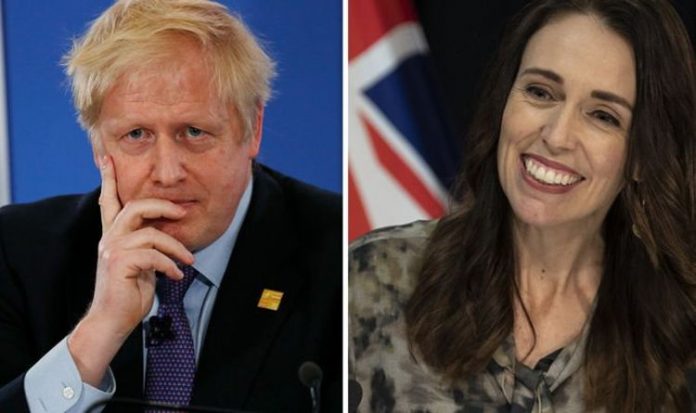After almost a year of negotiations and multiple missed deadlines, Britain and the EU have finally secured a post-Brexit trade deal. Announced on Christmas Eve, Prime Minister Boris Johnson described it as a “jumbo Canada-style” deal and declared: “All our red lines about returning sovereignty have been achieved. “Everything that the British public were promised during the 2016 referendum and in the general election last year is delivered by this deal.
“The deal is fantastic news for families and businesses in every part of the UK. We have signed the first free trade agreement based on zero tariffs and zero quotas that has ever been achieved with the EU.”
Speaking from Brussels, European Commission president Ursula von der Leyen said the EU had achieved “five-and-a-half years of predictability for our fishing communities”.
She added that on issues such as climate change the EU and the UK will stand “shoulder to shoulder to deliver on our common global goals”.
As usual, though, the devil is in the detail and in the full text of the trade deal published on Saturday morning, it has emerged that New Zealand farmers will have to go through less red tape than Britain, as there is no “equivalence” agreement.
BBC Economics editor Faisal Islam wrote on Twitter: “The food industry, already smarting from events, says the lack of equivalence for Great Britain’s agri-food / Sanitary and Phytosanitary Measures (SPS) is problematic.
“As it stands they say ‘New Zealand has a closer relationship on SPS with the EU than Britain from January 1’ with an agreement that limits checks (1 percent) and simplifies paperwork.”
Sharing his frustration, a Twitter user wrote: “British farmers now have more red tape to sell lamb to the EU than New Zealand farmers do.
“We’ve put up a border within the UK. We’ve made ourselves poorer and weaker.
JUST IN: Thatcher’s brutal analysis of ‘politburo’ EU proves why Britain left
It also recognises New Zealand meat and dairy inspection systems as equivalent.
Ian Wright, chief executive of the Food and Drink Federation, said about the deal: “This week’s chaos at Dover and the last gasp nature of this deal means that there will be significant disruption to supply and some prices will rise.”
Minette Batters, president of the National Farmers’ Union, said more UK-EU talks were needed to prevent perishable food becoming caught in border queues.
Shane Brennan, chief executive of the Cold Chain Federation, said the arrangements would mean that the UK’s “food chain will be slower, more complex and more expensive for months if not years”.







